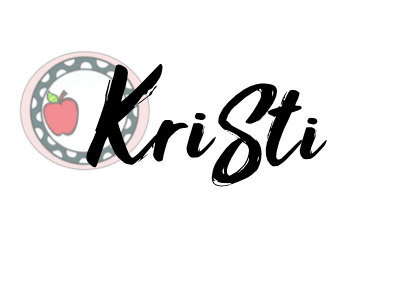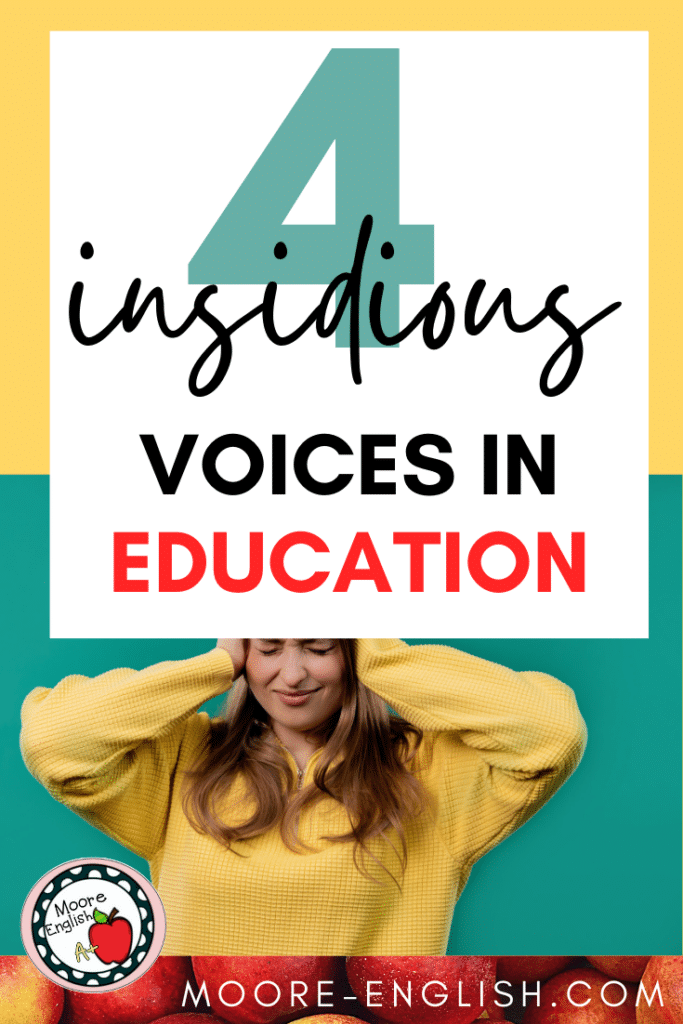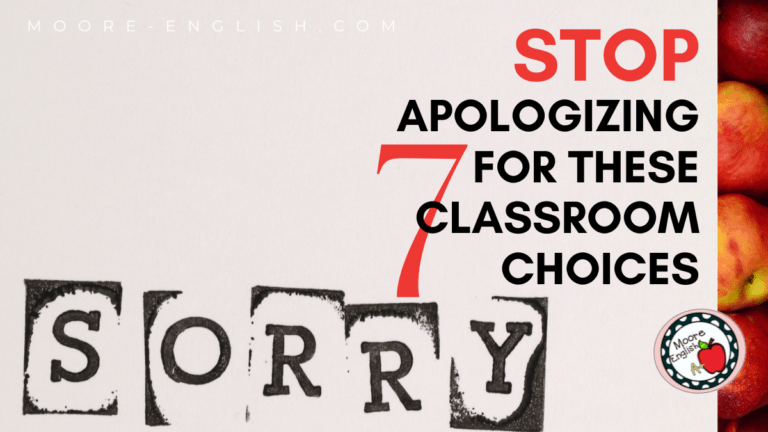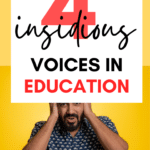The voices in education that sound the loudest are not always the ones you need to hear. Let me share my experience with you, and you can decide who you want to hear.
Recently, I changed school districts. I downsized from a large school district to a small rural school district. My new school is two hours away from where I previously taught, so my well-established support system is far away. We text and chat online, but it’s not the same as having a beloved classroom neighbor who reads your mind.
As I’ve settled into my new school, I’ve been “interviewing” new teacher friends. I’m looking for my people, and I’m old enough that I can be choosy. I know what types to seek out and what types to avoid. At the end of the day, I’m looking for a support group of sorts, but I’m also looking for colleagues who will challenge me and encourage me. I’m looking for peers who will lift me up, not drag me down.
Education full of loud voices, so deciding who to listen to and who to shut out can be challenging. Plenty of the voices in education are serving a larger motive (oftentimes financial). Over the years, I’ve learned that these can be particularly insidious voices in education. As I seek new teacher friends, these are the folks I hope to avoid.
This post this post may contain affiliate links. Please read the Terms of Use.
The Gaslighter
Of the voices in education to avoid, the one that seems the most prevalent is The Gaslighter. This is a person who makes you believe that your problems aren’t real or are insignificant. You can recognize The Gaslighter when you find yourself thinking: “Am I overreacting? Am I the problem? Did I make this all up?”
The answer to those questions is “No.”
However, it can be difficult to say “no” to others, and it can be even harder to say “no” to yourself.
As a professional, you recognize when something isn’t working in your classroom, lesson, building, team, club, etc. While there are plenty of voices in education, yours is the first one you will hear. It may also be the one that takes the longest to trust, to hone, and to cultivate.
Perhaps because education is a caring profession, it’s often associated with women workers and male leadership. As women, we’re often socialized to listen to ourselves last, to apologize habitually, and to defer to men. As you work to avoid The Gaslighter, it’s important to push against those often well-developed instincts.
The Gaslighter may not be an intentional fiend (their actions are also likely a product of their socialization). Nevertheless, anyone who makes you feel less than is not a friend. Whether they are intentional or not, The Gaslighter is one of the voices in education that can cause needless doubt, strife, and anxiety.
Faux Allies and Fairweather Friends
As I go about finding new teacher friends, two more voices of education that I hope to avoid are Faux Allies and Fairweather Friends.
Faux Allies and Fairweather Friends are similar. A Faux Ally is someone whose goals, philosophy of education, and interests may align (or seem to align) with yours. However, the Faux Ally only appears to help you achieve your goals. They may pay lip service to your ideas, but when it comes time to enact them, they may back down. They may support you in public but gossip behind your back.
A Fairweather Friend is only by your side when things are going well: when you’re winning grants, accepting awards, or receiving applause. However, when it’s time to dig in and dig deep, the Fairweather Friend is not getting their hands dirty. They want to reap the rewards of your hard work without putting in any time themselves.
The Faux Ally and Fairweather Friend are both difficult voices in education to avoid because they look so good on the outside. We all want someone to support us and to stand with us. As a result, it can be tempting to accept an ally or “friend” of any stripe, no matter how superficial.
However, I’m old enough now to recognize that these folks are energy vampires. As a younger person, I was not confident enough to sit by myself. I wasn’t comfortable enough to be independent. But as a more experienced teacher, I’m quite happy to work on my own and to stand alone if need be. Sometimes it’s important to be your own cheerleader and friend. At first glance, that might seem lonely, but I find it fulfilling.
Nostalgic Nancies and Neds
I’ve written before about toxic trends in education. Toxic nostalgia is a pernicious trend, and its mouthpieces are Nostalgic Nancies and Neds. These are folks who are always ready to tell you about how much better education was “in the old days.” Doubtless, Nancy and Ned walked to school uphill both ways in the snow.
The danger here is that nostalgia is its own kind of rose-colored glasses. There are absolutely lessons we can learn from the past, but education has to look forward. The loudest voices in education should be those who seek to move forward.
“Forward” often gets conflated with “different” or “innovative.” However, “forward” progress may be doing the same (or similar) action over and over and doing it extremely well. Improving in your craft does not always have to be the biggest and brightest. Sometimes the best thing you can do is consistently improve in how you tackle the little things. Nostalgic Nancy and Ned will never understand that.
Who to seek out?
While there are plenty of voices in education to avoid, there are some absolute gems you should seek out. As I settle into my new school, these are the folks I’m seeking out.
- The Challenger: I am at my best when I have a professional ally who challenges me and who pushes me to think critically about my choices.
- The Advocate: The kinds of people I want for my students are also the kinds of people I want in my own life. Every student deserves adults and friends who advocate for them and help them advocate for themselves. The Advocate helps those around her to speak up for themselves; she teaches us how to use our own voices in education.
- The Digger: One of my previous principals spoke about the willingness of the staff to “dig in.” That’s someone I always want in my corner: a colleague who is willing to get in the mud with me, who is willing to wade through the spreadsheets with me. This is someone who is willing to go deep with you, whether that’s in assessment design, data analysis, team building, etc.
- The Investor: Sometimes called a “stakeholder,” an investor is someone willing to put their time and effort into you. The Digger and The Investor are two sides of the same coin, but The Investor is also “vested” in the school somehow. Maybe they are an alum of the school, maybe their children attend the school, maybe they are part of a relevant community organization. Whichever of these characteristics The Investor has, they bring a unique perspective to friendship that I find valuable.
Here’s to hoping that you (and I) find the voices we value and learn to set aside those that do not or no longer serve us!










